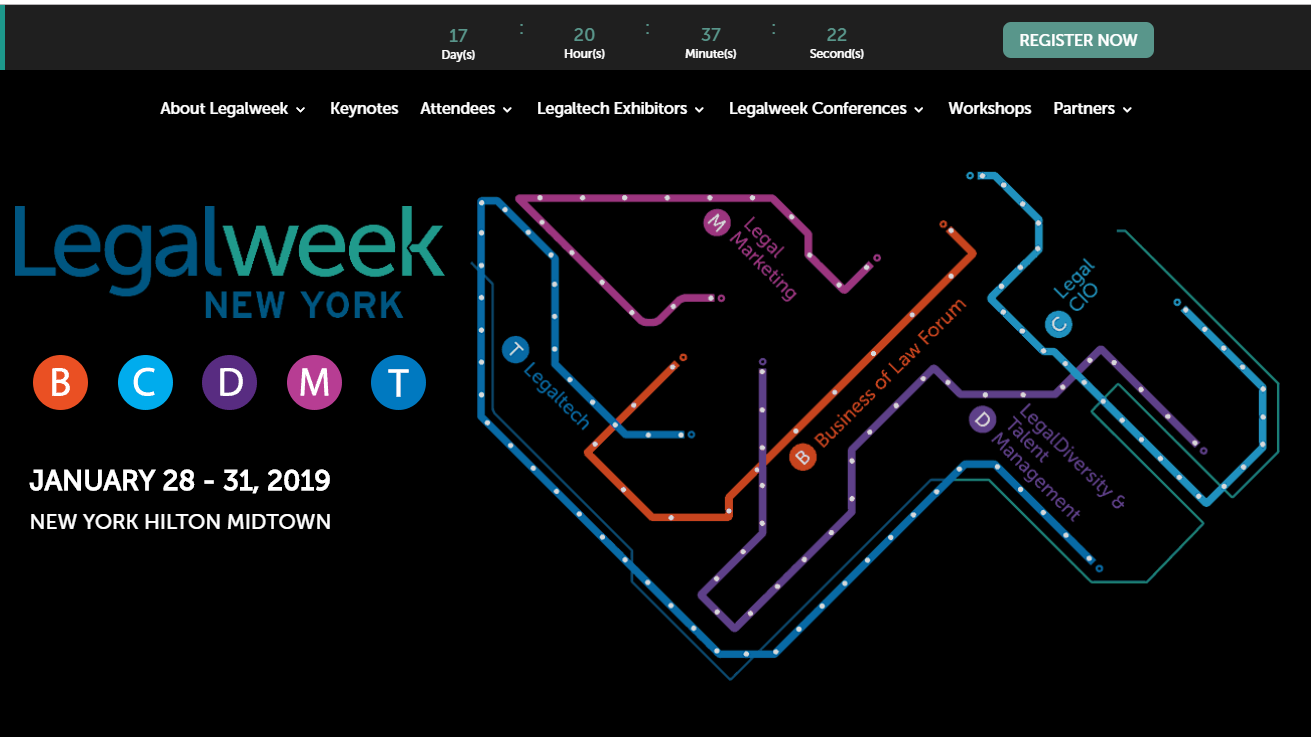With Legaltech, one of the world’s largest and most-important legal technology conferences, just two weeks away, we are at a time when it has never been more obvious how tech is transforming the practice of law. With the proliferation of legal tech startups and new apps on the market seemingly every day, lawyers are in a prime position to take advantage of innovations that offer the possibility to achieve what once seemed unachievable – doing more with less.
Perhaps no legal technology has grabbed as much of the spotlight in recent years as artificial intelligence. As AI’s capabilities in law continue to expand and its use becomes more widespread throughout the industry, lawyers are coming to a better understanding of what AI technology can offer. With the help of AI, streamlining legal operations is a real possibility, allowing lawyers in all walks of practice to improve operational efficiency while reducing both costs and risk.
As we gear up for Legaltech, part of the larger Legalweek, Jan. 28-31 in New York, I plan to publish a handful of posts looking ahead to what the conference is offering in key areas of interest. With AI so much in the spotlight — from contract review and e-discovery to administrative operations, data analytics and legal research — it seemed the perfect topic to start with.
Here are a few of the Legalweek sessions on AI that stood out. The full agenda, including other sessions on AI, can be seen at the conference website. Descriptions are taken from the agenda.
Legaltech Conference Track
DAY ONE – 4:00-5:00
Friend or Foe: A Debate About Contract AI and Whether It Will Steal Your Job
AI is sweeping through our daily lives and stirring up a frenzy of speculation. For lawyers, the use of AI to perform contract analysis is both exciting and scary. This session is a panel debate on the different theories about whether your job is, or isn’t, at risk and what you can do to ride out the AI wave rather than drown in it.
Speakers: Benjamin Polster, Corporate Legal, Process & Technology Management, Siemens Healthcare GmbH, and Gregory Culloo, Partner, PricewaterhouseCoopers LLP.
Moderator: Jamie Wodetzki, Chief Product Officer and Co-Founder, Exari.
DAY TWO – 10:30-11:30
Why Lawyers Are Adopting AI Faster Than You: Law Firm Leaders Share Technology Strategies
Predictive coding paved the way for a new era of AI-enhanced law firms. Where do we go next? Automated document summaries, claims extraction, multifaceted chronologies, sentiment analysis, and more on the horizon. Law firm leaders are looking to these technologies to grow their competitive edge and realize new client service enhancements. During this breakout, panelists will share their insights on the problems and pain points faced in their practice, their innovation journey towards developing technological solutions, and the new AI-enhanced technologies that they are actively pioneering with software developers right now.
Speakers: David Lapresi, CEDS, e-Discovery and Litigation Support Manager, Phillips Lytle LLP, and David Stanton, Litigation and eDiscovery Partner, Information Law & Electronic Discovery Team Leader, Pillsbury Winthrop Shaw Pittman LLP.
Moderator: Adam Kuhn, Director of Product Marketing, OpenText.
LegalCIO Conference Track
DAY ONE – 1:30-2:20
Re-Imagining Business Functions Through the Use of AI & Predictive Analytic Tools.
In this session participants will be able to create artificial intelligence powered tools in their law firms, based on actual projects built by their non-computer scientist peers. They will be able to identify different types of projects—including those related to knowledge management, billing and analytic, contract analysis, and personality insights—that can use AI inside of law firms. Participants will also be able to summarize the key features of AI tools from IBM Watson, LexPredict, Neota Logic, and others, and be able to apply a basic understanding of public and private data sets for projects in their libraries.
Speakers: Greg Lambert, Chief Knowledge Services Officer, Jackson & Walker LLP; Mark Sportack, Chief Information Officer, Crowell & Moring LLP; Oz Benamram, Chief Knowledge Officer, White & Case LLP; and Catherine Bernard, U.S. Litigation Professional Support Lawyer, Mayer Brown LLP.
Moderator: Phil Rosenthal, President and Co-Founder, Fastcase.
DAY ONE – 2:20 – 3:30
Developing A Playbook to Evaluate AI Technology
This will be an interactive session session where the audience will be separate into groups and tasked with coming up with their own AI playbook. After this session, attendees will be able to define AI, develop standards and metrics to determine AI product value and establish measurements to determine business cases and opportunities within AI.
Speakers: Bennett Borden, Chief Data Scientist, Drinker Biddle & Reath LLP; Dan Linna, Director of Legal R&D, Michigan State University, and visiting professor of law, Northwestern University Pritzker School of Law; and Ameen Haddad, Assistant General Counsel, Oracle.
You can check out the full agenda for the conference here.
 Robert Ambrogi Blog
Robert Ambrogi Blog